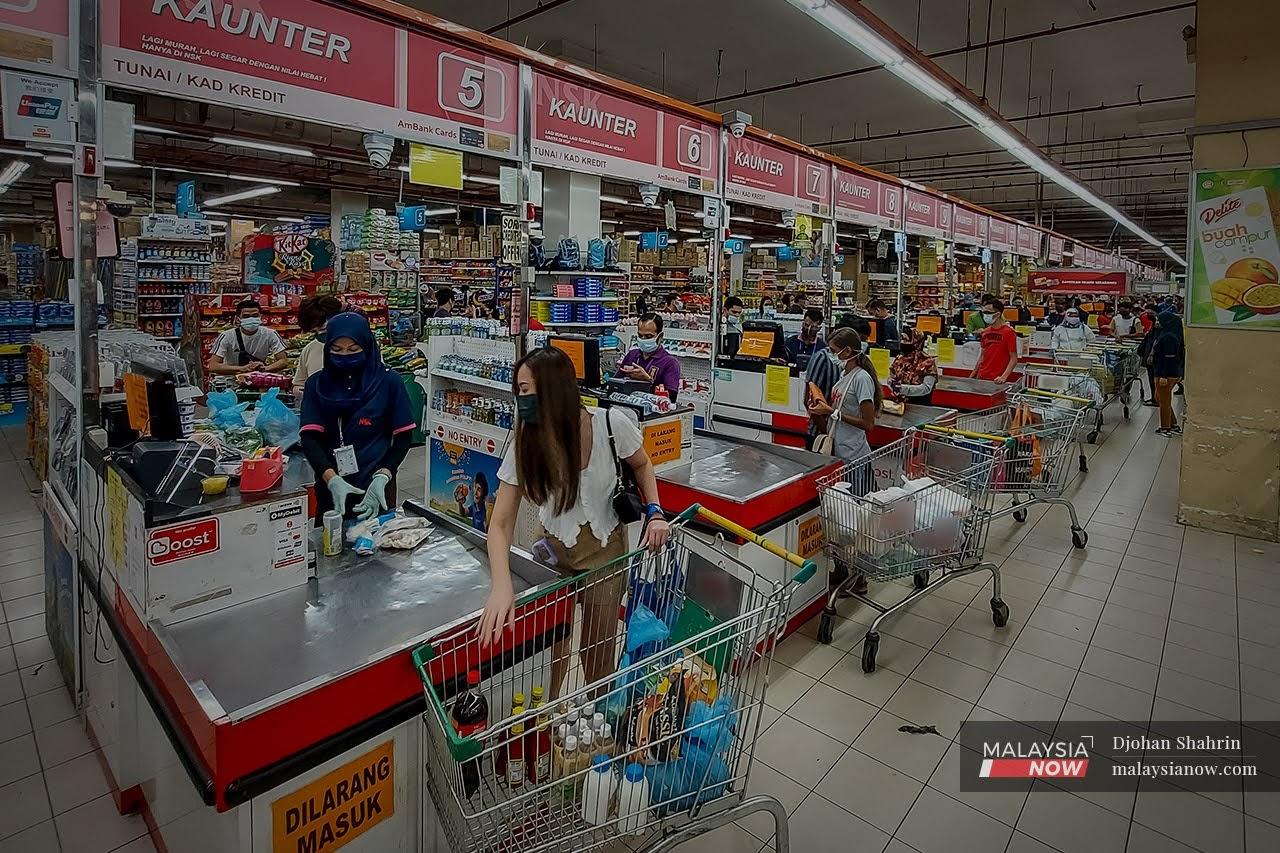Ringgit slump due to external factors, economists say
But there is also a silver lining to the drop in ringgit value, they add.
Just In
The recent drop in ringgit value against the US dollar is mostly due to external factors such as the threat of an interest rate hike by the US Federal Reserve, and not necessarily because Malaysia has weak economic fundamentals, economists say.
Ahmed Razman Abdul Latiff said the situation had affected the performance of other currencies as well, not just the ringgit.
Razman, of the Putra Business School, said the market had previously expected an interest rate hike by the Fed to 1.75% due to inflation in the US which was at 8.3% – the highest in the last 40 years.
“When there is speculation of a significant increase in US interest rates, the US dollar will strengthen against other currencies, including the ringgit,” he told MalaysiaNow.
Amanda Yeo of think tank Emir Research meanwhile said that the ringgit performance had also been hit by inflation in larger economies such as the US and China.
Given Malaysia’s over-reliance on food imports, she said, the country was now facing a situation marked by a drastic increase in the price of food and goods.
In 2020, Malaysia imported RM55.5 billion in food products compared to its exports of RM33.8 billion, leaving it with a deficit of RM21.7 billion.
“Such a large outflow continues to put pressure on the local currency,” Yeo said.
“If the inflation rate continues to rise, Malaysians are likely to cut down their spending. This could contribute to a lower GDP growth, thus also affecting the ringgit value.”
But Razman said the ringgit depreciation could also benefit the country as it could contribute to increased exports and the recovery of foreign direct investments.
Judging by the trade balance, Malaysia’s positive current account and the decline in unemployment rate, he said there was no reason to expect an economic recession.
“In fact, since the Fed has already announced an interest rate hike of between 1.50% and 1.75%, all uncertainties have been laid to rest,” he said.
“I do not see the ringgit continuing to weaken.”
According to Yeo, meanwhile, the weaker ringgit would spur the arrival of foreign tourists which in turn would contribute to growth in the tourism, hotel and airline sectors.
“For example, the drop in ringgit value compared to the Singapore dollar will attract visitors from Singapore, which would provide a boost to the local economy,” she said.
She added however that if revenue from foreign tourist arrivals was less than the total expenditure among Malaysians, more time would be needed for economic recovery.
Razman, on the other hand, said Malaysia’s economic performance also depended on the perceptions of industry players and investors.
He said proof of this could be seen in Malaysia’s drop from 25th place to 32nd in the 2022 World Competitiveness Ranking by the International Institute for Management Development. He said the country had been embroiled in a political crisis which affected investor confidence.
“Economic recovery doesn’t just depend on the movement of goods and services,” he said. “It also depends on perception.
“Malaysia might not actually be facing any issues, but if investors believe we are, they will pull up stakes and move elsewhere.”
Yeo agreed that the country’s political situation had a strong effect on investor confidence.
If Malaysia continued with its frequent changes at the top, she added, it could jeopardise economic recovery.
“If Malaysia gets a stable government again after the 15th general election, investor confidence will return,” she said.
“And once we succeed in reviving our FDIs, it will boost the country’s economic growth as well as demand for the ringgit.”
Subscribe to our newsletter
To be updated with all the latest news and analyses daily.
